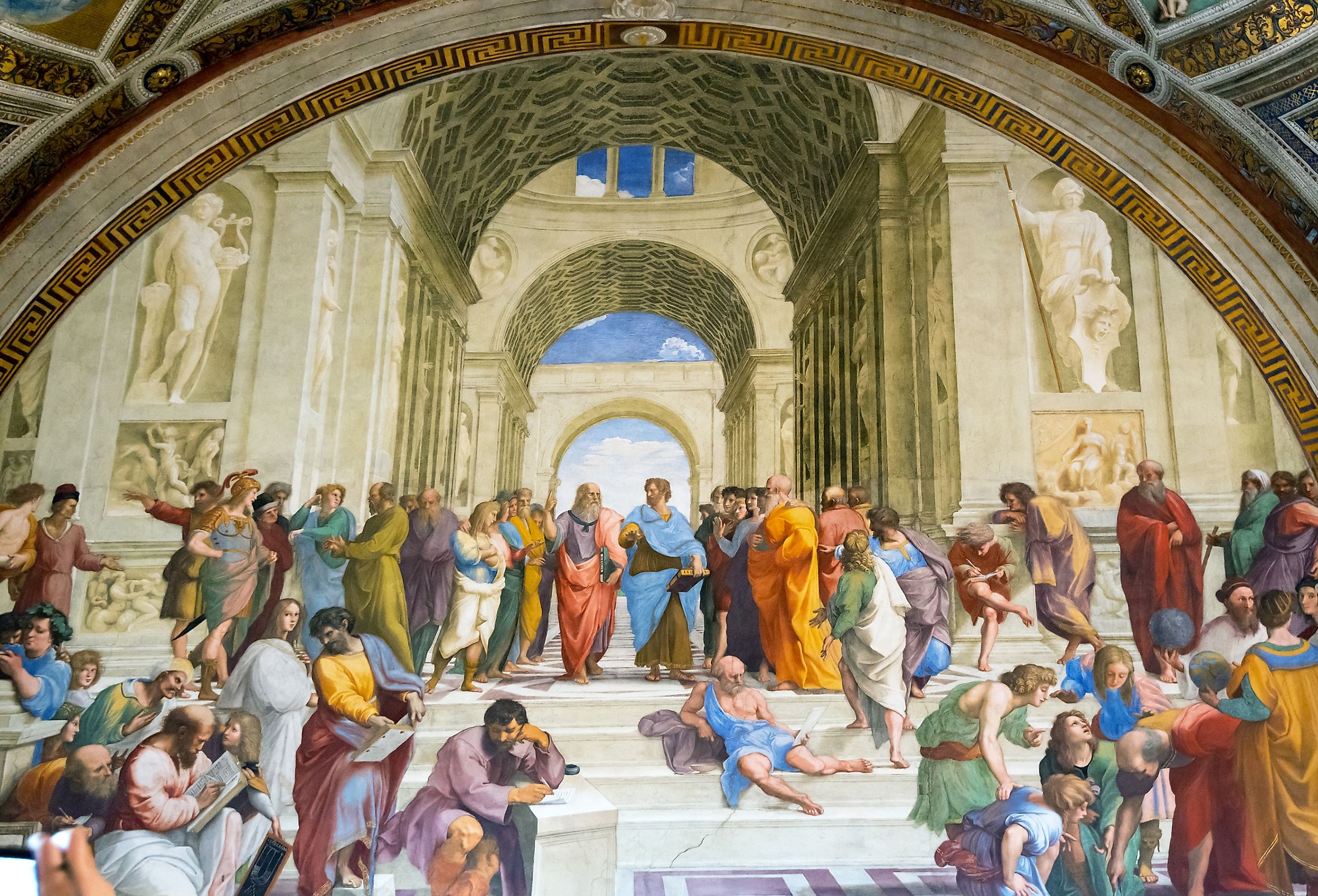
Ancient Greek Philosophers Lessons For A Life Without Regret
Regret is part of the human experience. Almost everyone has experiences they wish they could change in some way. However, if you feel like you have a list of regrets longer than your weekly grocery list, it might be time to make some lifestyle changes. This is where the Ancient Greeks can help. Ancient Greek philosophers have many life lessons within their philosophies. Although the philosophers existed many, many years ago, their advice still holds value today. Here are a few Ancient Greek philosophers with lessons for a life without regret.
Heraclitus
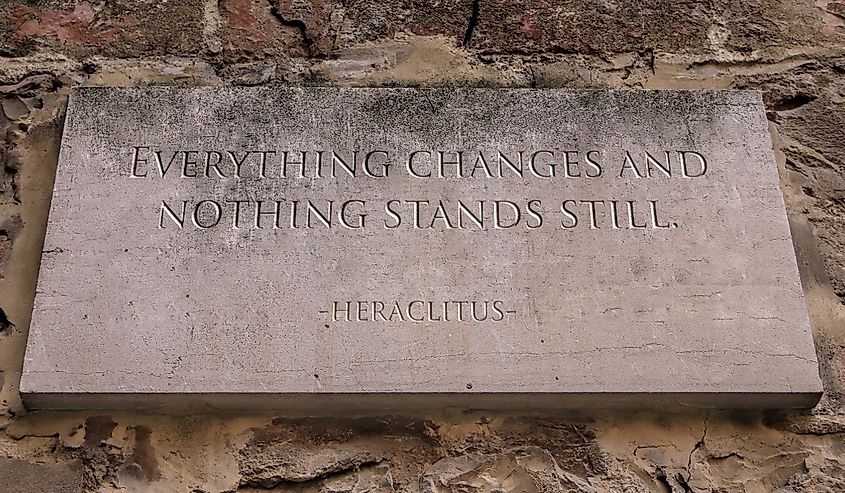
Quotations
"The content of character is your choice. Day by day, what you do is who you become."
"Everything flows and nothing abides, everything gives way and nothing stays fixed."
"No man ever steps in the same river twice, for it’s not the same river and he’s not the same man."
Heraclitus was an ancient Greek pre-Socratic philosopher in the late 6th century BCE. Heraclitus's first quote expresses the importance of being the person you want to be through your actions. Rather than falling into being a certain way, Heraclitus calls us to choose the people we want to be. This shows the power and importance of habit. For example, if you want to be a kind person, do something kind day to day.
Heraclitus's last quote mentioned here is his most famous. His quote speaks to the idea of the impermanent nature of life and how people change. People go through experiences that change them, and as people grow, they change. The impermanent nature of everything shows that we do not have to become attached to our current mental states. If you are experiencing pain now, the pain is temporary. Not being stubborn and stuck identifying with an idea you have outgrown allows you to move forward, away from regrets.
Socrates
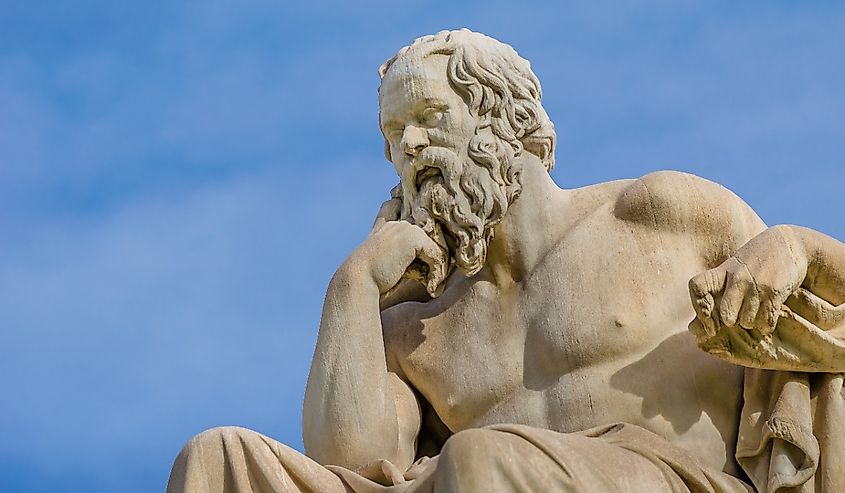
Quotations
"Beware the barrenness of a busy life."
"I Call myself a peaceful warrior because the battles we fight are on the inside."
Socrates is one of the most well-known philosophers of the ancient world. He is famous for his moral philosophy, which used logic as a foundation, as opposed to religion. As the last quote here suggests, Socrates realized the biggest battles people face are themselves. Socrates believed one of life's most important challenges was getting to know yourself and facing your struggles.
In the first quote, Socrates expresses how often people get preoccupied with being busy. Today, many people lead busy lives at work and at home with their families. Life can get so busy; hours, days, weeks, and months blur together. Moments turn into blurry memories, and life can feel more bare when it becomes too busy. But life doesn't have to be this way. To get out of the busy life trap and make sure you don't live a life you will regret, make your own happiness a priority.
Plato
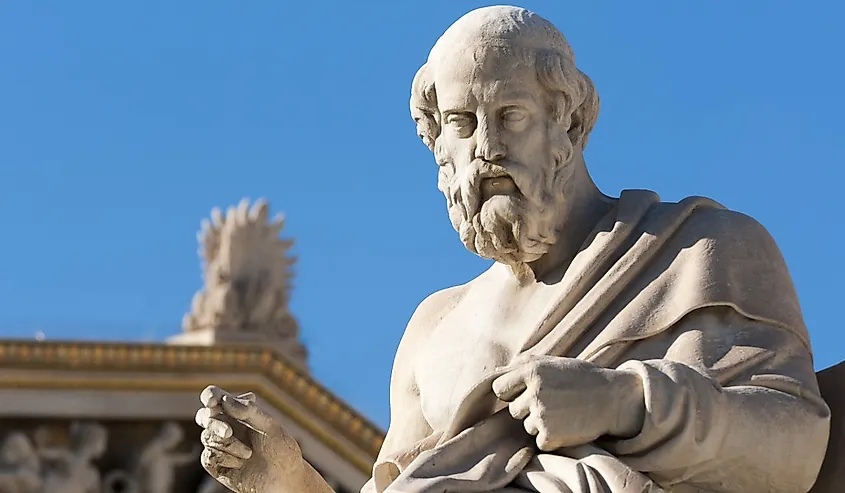
Quotations
"I never did anything worth doing by accident, nor did any of my inventions come by accident; they came by work."
"Ignorance is the root and stem of all evil."
Like Socrates, Plato was an ancient Greek philosopher remembered as one of the founding philosophers of Western Philosophy. Plato was Socrates' student and Aristotle's teacher. The first quote from Plato stresses the importance of intention. Where you place your focus will impact the results of your work. In other words, if you want something, you have to work at it and put your focus on that thing.
The last quote above from Plato brings a new perspective to the ideas of good and evil. This might seem like too generous of a view, but often when people do harm, it is out of not knowing any better. Realizing ignorance is the root and stem of all evil also opens up opportunities for us to learn about evils we might be ignorant to. Bringing this open mind to the idea of evil allows us to acknowledge when our ignorance might lead us to unintentionally hurt someone else. Being conscious of this can help us deal with these situations with grace instead of regret.
Epictetus
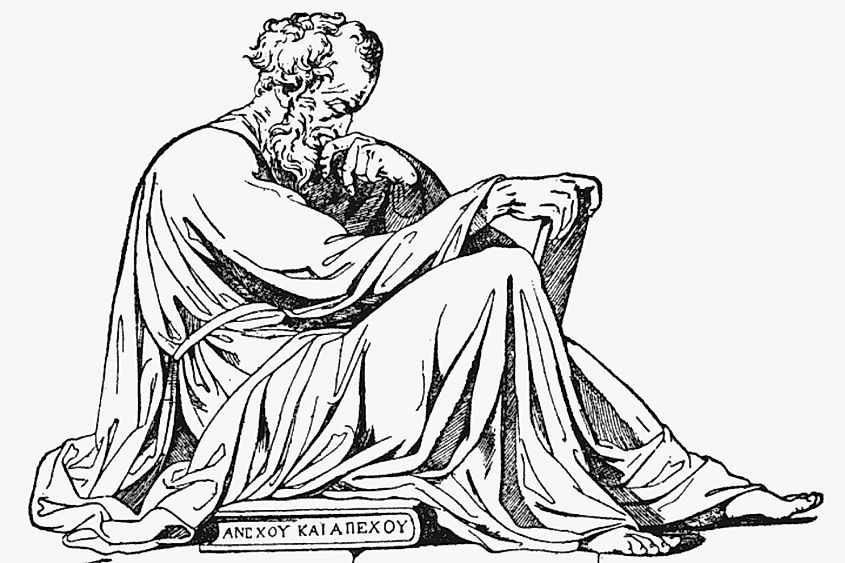
Quotations
"Wealth consists not in having great possessions, but in having few wants."
"Make the best use of what is in your power, take the rest as it happens."
Epictetus was a Greek Sage. He was born a slave but became a philosopher and teacher after gaining his freedom. Although Epictetus couldn't write, his pupil Arrian wrote down his philosophies. Both quotes above emphasize Epicetus's value of focusing on what you can control. In the first quote, Epictetus recognizes there is much that happens in life that is outside of our control. Focusing on the parts that we can control allows us to be productive in our focus and express agency over our lives. By focusing on what we can control, we can make positive changes in our lives. Accepting what we cannot control allows us to move forward within our limitations. This way, we can change our lives for the better instead of dwelling on what we cannot change.
Aristotle

Quotations
"Educating the mind without educating the heart is no education at all."
"It is the mark of an educated man to be able to entertain a thought without accepting it."
Like Plato and Socrates, Aristotle is one of the founding philosophers of Western philosophy. At 17, Aristotle joined Plato's academy. When Plato died, he tutored Alexander the Great. Aristotle had many philosophies that had a huge impact on society.
The last quote above shares a particularly important idea. Immediately believing our thoughts can be a source of suffering. Observing our minds without attaching ourselves to each thought is important to having a better life. When you can notice your thoughts and not act on impulse or identify with every thought, you might make different decisions more in line with the goals you want to pursue. In turn, this will lead to less regret.
Listening to Regret
The tidbits of wisdom from ancient philosophers are not intended to erase regret but to minimize the number of times you will experience regret. The lessons these philosophers taught can help people make the most out of their lives. This is the best way to minimize regret. Something to remember is that we often regret what seems lost forever, whether that is time, lost opportunities, or romances. Taking time to reflect on your current regrets allows you to see what you truly want out of life. This way, you can put steps in place, using the advice from ancient philosophers, to make your dreams happen.







